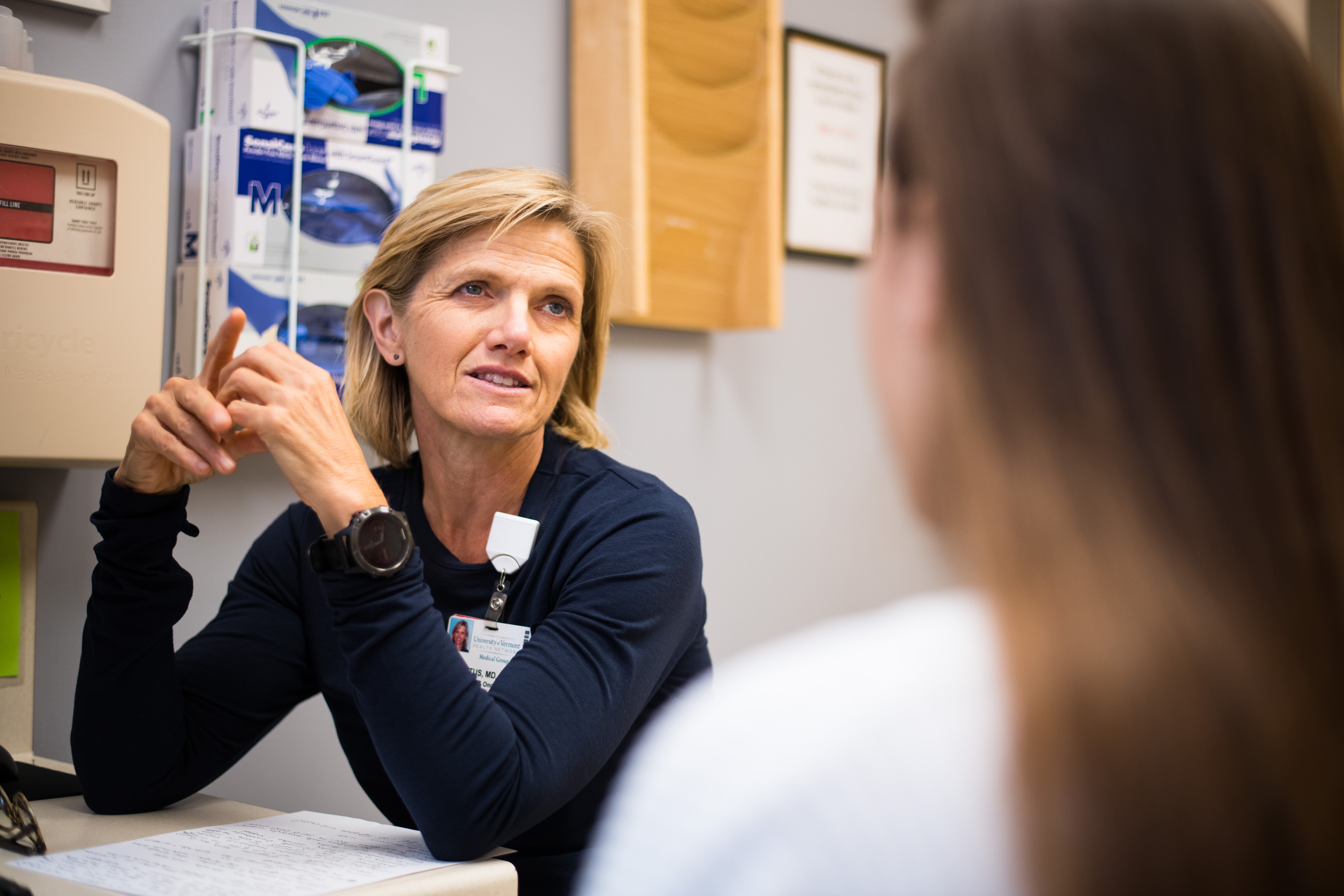
Over 47 million adults in the US are unpaid caregivers – which is almost 20% of the population. Data also shows that LGBTQ populations and people who identify as women disproportionately provide care. It is likely that you know a caregiver, are a caregiver, or will one day be a caregiver.
About a third of cancer caregivers report spending 20+ hours/week providing patient care which includes things like medication management, appointment scheduling, and household tasks. While caregivers provide important care for family members and friends, many are also juggling additional responsibilities (childcare and work, for example). Caregivers are often called “invisible patients” because they are impacted by the disease, but do not receive services or attention to meet their needs.
At the UVM Cancer Center, researcher Maija Reblin, Ph.D. studies the science of caregiving. Below, Dr. Reblin shares her expert advice about how to support caregivers.
OFFERING AND ASKING FOR HELP
Caregivers rely on their informal support networks to help care for their patient and to meet their own needs. While family members tend to be very involved, neighbors, friends, and work colleagues also offer important support. In fact, some people rely more on non-kin support, especially those who are far away from family or who have difficult relationships. Receiving effective support from family and friends has been shown to improve caregiver and patient health outcomes.
If you know a caregiver: Caregivers may have a hard time knowing what they need, but also what they can ask you for. If there’s something you’re willing to do, make a clear offer or a few suggestions (“Can I mow your lawn for you this week?” vs. “Let me know if I can help!”). Keep in mind that sometimes something you do to be kind might be more work for the caregiver, so it’s important to respect their boundaries (e.g., stopping by without calling might mean waking up the patient).
If you are a caregiver: Asking for help is important! Often people want to help you, but don’t know how. Don’t be afraid to ask! To get the support that is most helpful, be direct. Make a clear ask to a specific person to do a specific task. Instead of stating a need (“I have no time to go to the pharmacy”), ask someone directly for help and be specific as possible (“Can you pick up that prescription at the CVS before Tuesday?”)
REMEMBERING THE RELATIONSHIP
Taking on a caregiver role can sometimes overshadow the previous roles people have with the patient. Instead of being spouses, a parent/child, or siblings, people become patient and caregiver. When an illness takes over, it can be hard to get out of that rut but taking time to go back to those old roles can be helpful for your relationship and your well-being.
Things patients and caregivers can do together:
- Talk about good memories together—a trip you took, a fun holiday, meaningful moments. Share what you thought was most meaningful about those experiences
- Work on a project—do a puzzle, create a scrapbook, or make playlists for each other
- Share a meal together without distractions. Talk about the best things that happened that week.
TAKING CARE OF YOURSELF
Similarly, many caregivers put aside their own activities and needs to care for the patient. Taking time for yourself can help you reconnect with yourself and re-energize you. These activities don’t need to take a long time, but can have important benefits.
Some things you can do by yourself:
- Take a few minutes to call a friend. Tell them something you appreciate about them.
- Go for a short walk or look out the window. Notice what’s going on around you
- Sit with a cup of tea or a snack. Focus on what you feel with all your senses.
RESOURCES
https://www.caregiving.org/wp-content/uploads/2020/05/Full-Report-Caregiving-in-the-United-States-2020.pdf
https://www.caregiving.org/wp-content/uploads/2020/05/CancerCaregivingReport_FINAL_June-17-2016.pdf
Additional research by Larner College of Medicine associate professor Maija Reblin, PhD can be found on the Vermont Family Medicine website.